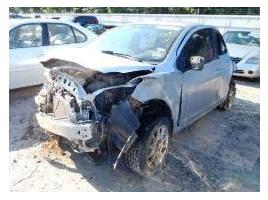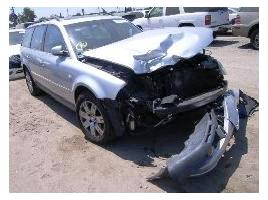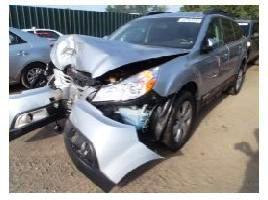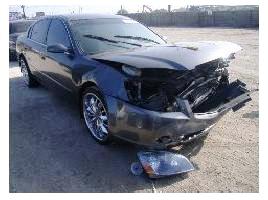Ask an Attorney a Question for FREE!
Small Claims Court
Collecting the Small Claims Award

If you get a small claims award, then the other party is bound to pay for your damages. Remember, you get an award against the person that hit you or caused the damages, and not directly against the insurance company.
You can take that order and fax it to the insurance company and request payment within 30 days (some courts require less, like 14 days). Most insurance companies will pay upon receipt of the small claims award notice.
Some adjusters will try to get smart and tell you that they are waiting on arbitration or mediation, or some other reason.

The bottom line is if you went to small claims and won, then you are entitled to the judgment - period. They only have the time allowed by the court to file a satisfaction of judgment with the court.
What if the insurance company does not want to pay or for whatever reason they simply express they will not honor the judgment (there is no coverage for example). Then you have to enforce the judgment against the person that caused the damage.
You can turn this into collection companies, but some of them will charge you up to 50% of the recovery fee. The problem with these companies is that they really do not do a very good job of pursuing people.
They try for some time and then lose all interest on the case. Your case becomes another file on someone’s desk.
If you are going to refer your collections efforts to a collection agency, make sure that they are actively working on getting you paid. This is usually easier for them if there is a judgment.

Instead of going to small claims court, you can take your case to an attorney. They are in a better position to tell you if you can put a lien against real property if that person owns any.
This will not get you paid per se, but if that person has real estate (e.g. a house), they cannot sell it or refinance it without you getting paid first.
More aggressive attorneys will be looking at collecting wages. If this person has insurance, then his insurance company is only going to be forced to pay the judgment.
If there is no insurance, the person will want to protect whatever assets and probably pay the debt.
The problem is when the person that hit you has no insurance, and they do not have a job or any kind of assets.

This can be very difficult to dispute and to collect against. They are judgment proof and they will no be able to pay you even if they want to.
Your own insurance can help you with this. If your own insurance company paid anything on your behalf (medical bills, car damage, rental), then they can refer the claim to their own collections company (same problem as above).
If you decide to use an attorney (a collections attorney) they can help the person that cause the accident “make payment arrangements” or set them up on a payment plan.
Going to court is a great way to get a small claims award and/or judgment. However, you should consider this before suing. There is a big possibility of never collecting a dime from a person without insurance.
Read more here:
Traffict Ticket eBook
Speeding Ticket eBook
1. Small Claims Court (Overview)
2. When to go Small Claims Court
3. Important Small Claims Considerations
4. How to argue your Small Claims Case
5. Small Claims Court Legal Argument Part I
6. Small Claims Court Legal Argument Part II
7. Arguing in Small Claims (the Police Report)
8. Small Claims Court and the Auto Damages
9. Small Claims and the Injury Claim
10. Collecting the Small Claims Award
11. Appealing the Small Claims Court decision
Total Loss eBook
Personal Injury eBook
|
|
|
For a Free Review of Your Case
Please Call (866) 878-2432 |


